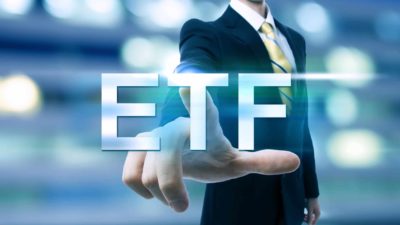The Betashares Global Cybersecurity ETF (ASX: HACK) has been a strong performing exchange-traded fund (ETF). I believe it's still a top buy because of the tailwinds it's exposed to.
Before I get to the tailwinds, I'll explain how it's set up.
It is invested in around 30 holdings within the portfolio, encompassing both global cybersecurity leaders and emerging players from various locations worldwide.
The annual management fee is 0.67%, so it's certainly not as cheap as other ASX ETFs. However, it's common for sector-specific ETFs to have higher costs than broad ETFs that are based on popular indexes like the S&P/ASX 200 Index (ASX: XJO).
The HACK ETF is invested in names like Infosys, Broadcom, Palo Alto Networks, Cisco Systems, Cloudflare, Check Point Software Technologies, Zscaler, Okta, and Akamai Technologies.
Cybercrime on the rise
The sad reality is that cybercrime is increasing, making it all the more important that governments, businesses and households have strong cyber defence systems to protect against criminals.
The Australian Signals Directorate's Australian Cyber Security Centre (ASD's ACSC) is the Australian Government's technical authority on cyber security.
In FY23, ASD saw the average cost of cybercrime per report increase by 14%. Small businesses see an average cost of $46,000 per cybercrime report. Nearly 94,000 cybercrime reports were lodged in FY23, up 23%. There were 33,000 calls to the Australian cyber security hotline, up 32%.
The main three types of cybercrime for individuals were identity fraud, online banking fraud, and online shopping fraud. For business, the main three types of cybercrime were email compromise, business email compromise fraud and online banking fraud.
I think that these growth trends of cybercrime could continue as Australia and the world become more digitalised.
Cybersecurity Ventures expects global cybercrime costs to grow by 15% per year in the next few years, reaching US$10.5 trillion annually by 2025, up from US$3 trillion in 2015.
Returns
The backdrop of rising cybercrime could mean that more governments, businesses and individuals decide to upgrade their cybersecurity.
I believe governments and businesses will continue to pay for cybersecurity services even if the economy goes down.
In my opinion, the HACK ETF has the potential to deliver both growth of earnings and defensive earnings.
Past performance is not a reliable indicator of future returns, but over the past five years, the HACK ETF has achieved an average annual return of 16%. I think it has strong tailwinds, which could help it continue to perform well.









